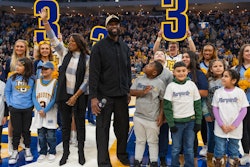One year after the murder of George Floyd, speakers at this year’s NCAA Inclusion Forum discussed systemic racism and how best to address it.
The five core areas that the National Collegiate Athletic Association (NCAA) inclusion efforts focuses on are disability, international student-athletes, LGBTQ+, race/ethnicity and gender. These aspects of diversity, equity and inclusion (DEI) were addressed at this week’s virtual forum, for which approximately 4,300 people registered.
In the session titled, “The Evolution of the Diversity Conversation,” Dr. Johnnetta Cole, president emerita of Spelman and Bennett Colleges and unconscious bias and diversity expert Howard Ross discussed systemic and institutional racism and how they fuel each other.
“It’s about doing the tough work of understanding systemic racism and, of course, how individuals participate,” said Cole, who is also the national chair of the National Council of Negro Women. “Fortunately, we have moved to the point where we are not only shining a light on this destructive stuff called systemic racism, we’re also shining a light on other systems of inequality that are embedded in systemic sexism, heterosexism, ageism, anti-Semitism, and yes, discriminating against individuals based on their physical and emotional abilities.”
Ross said beyond diversity and inclusion, the next step is belonging, in which people can be themselves and not conform to a white standard.
“Race has been a conversation we’ve been trying to have at a deeper level for a long time, and it’s not a linear process,” he said. “We make progress, then we step back a bit, and then we make more progress, but it’s at the core of the tension in our culture.”
Cole noted that barriers to education and access have long existed and will continue until change is implemented.





















